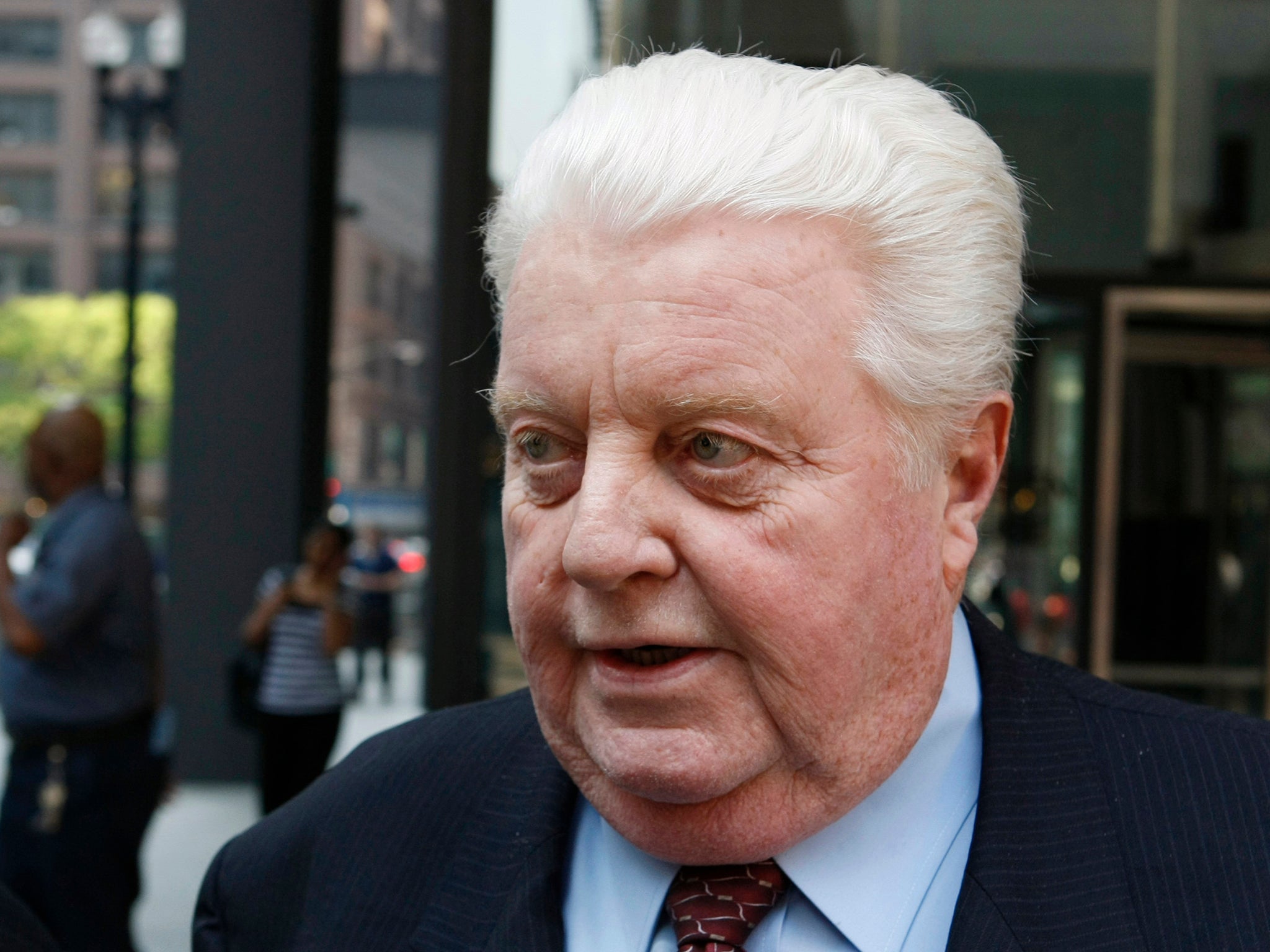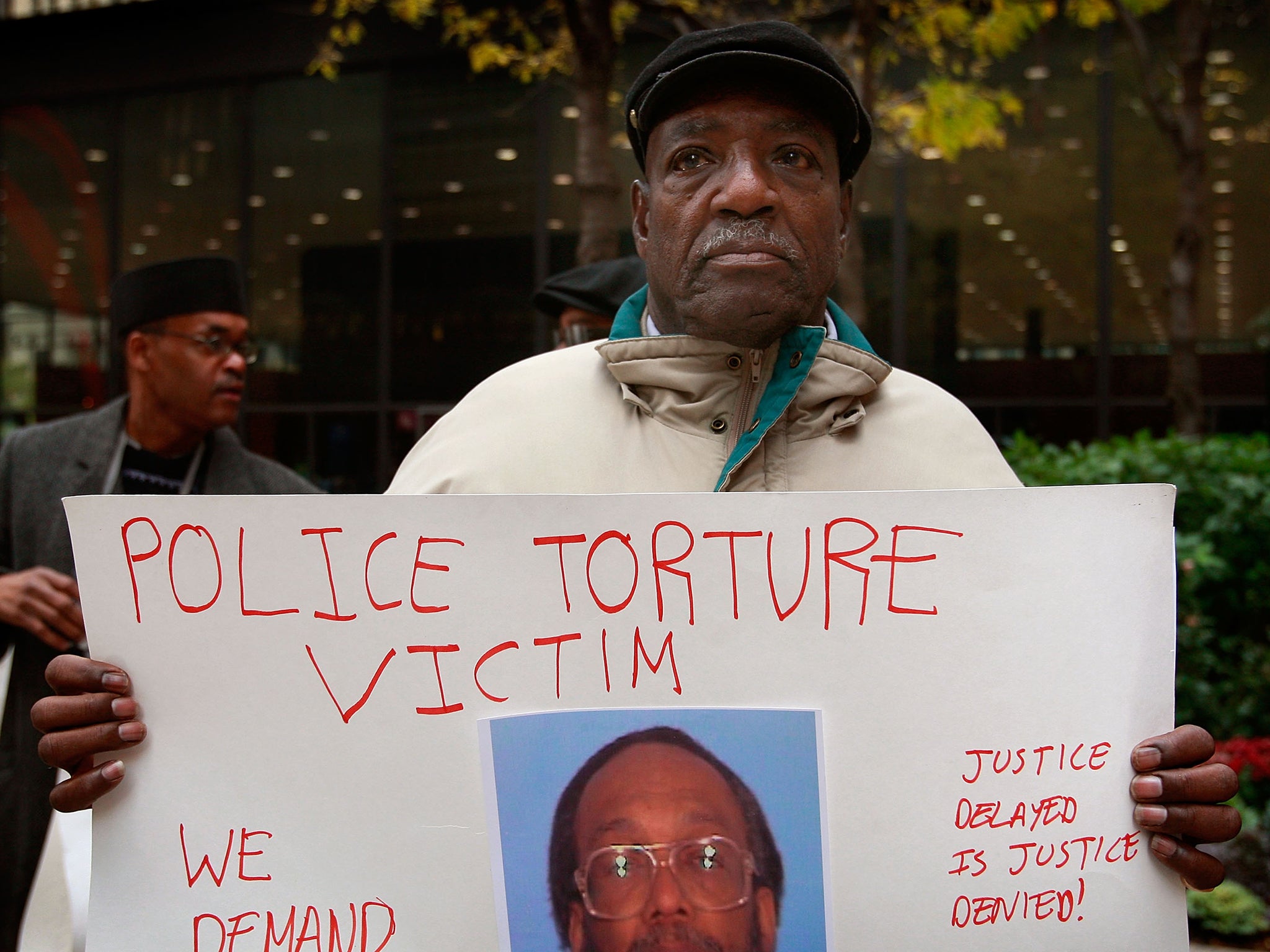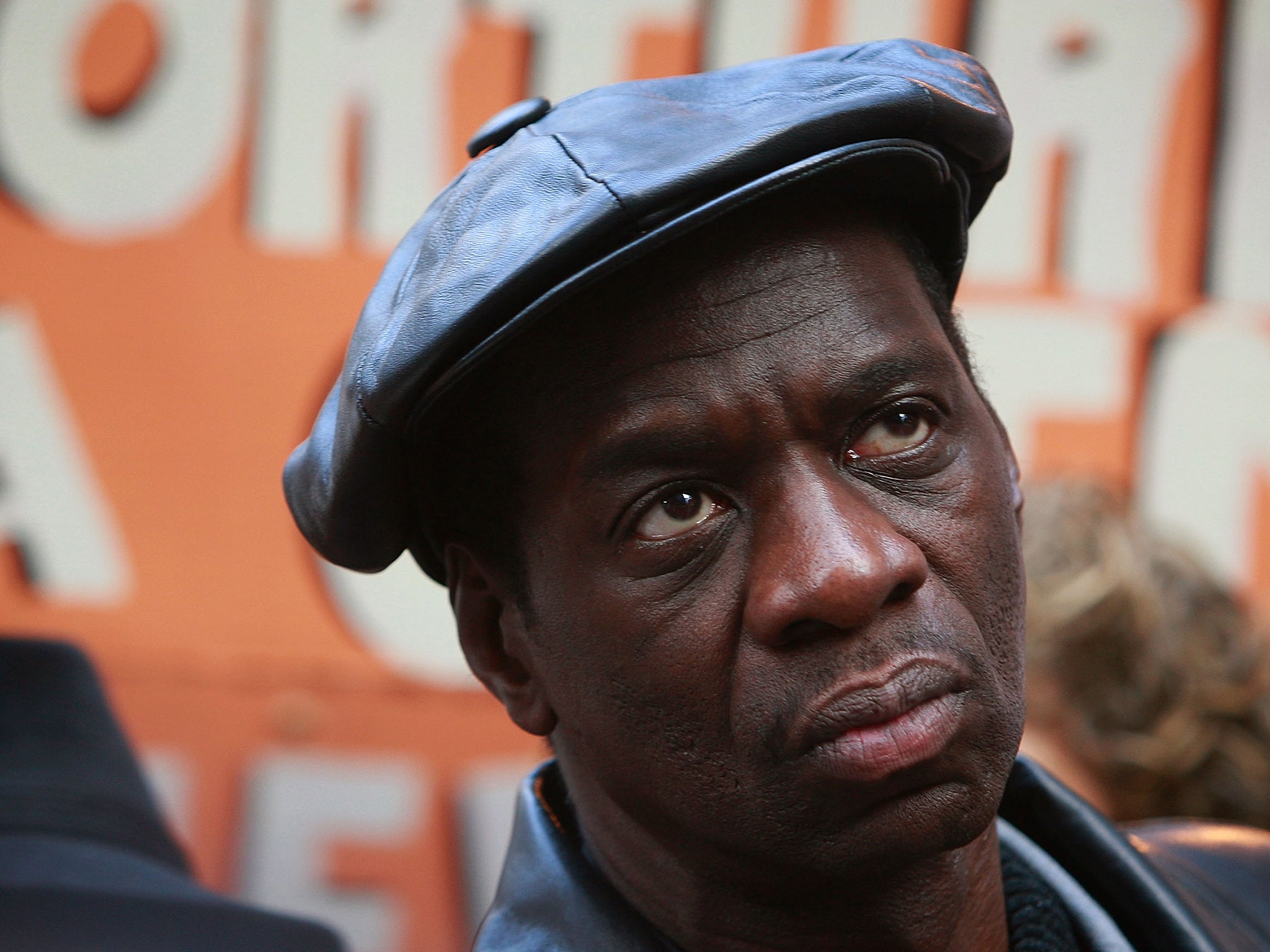Jon Burge: Chicago police chief and 'torturer' who targeted black men
Burge was accused of burning suspects on radiators, suffocating them and using electroshock methods – but the statute of limitations on his crimes lapsed before he could be convicted

Leading a group of officers known as the Midnight Crew, Chicago police commander Jon Burge was alleged to have overseen the torture of more than 100 black suspects – suffocating, beating, burning and electrocuting them until they confessed to a crime.
Many received decades-long prison sentences. Some landed on death row.
And for countless residents on Chicago’s South Side, Burge and the police district he helped command – Area 2 – became synonymous with torture and police impunity, emblems of a department long plagued by allegations of racism and misconduct in a city that seemed uninterested in investigating their scores of complaints.
Chicago would eventually pay an estimated $100m (£76m) to settle lawsuits filed on behalf of Burge’s alleged victims, for cases from the early 1970s to 1991. Burge was fired from the department in 1993 for torturing a suspected killer of a police officer, but he was never convicted on torture charges. By the time sufficient evidence had been amassed, prosecutors said, the statute of limitations had lapsed.
Burge, who seemed to have avoided criminal charges altogether until he was found guilty of perjury and obstruction of justice in 2010, died at 70.
He had been living near Tampa, in Apollo Beach in Florida.
A decorated army veteran who served as a military police officer during the Vietnam War, Burge was commended as a police department hero early in his career. He stopped a woman from killing herself, jamming his thumb into the firing mechanism of her gun, and once captured a group of robbers in a camera shop while unarmed and off duty.
But according to news reports, victim testimonies and prosecutors, he began torturing suspects soon after his arrival on the force in 1970, suffocating suspects with plastic bags, burning them on hot radiators, beating them with phone books and employing electroshock methods he seemed to have learned while in Vietnam.

Testifying before the Chicago City Council in 2015, one man recalled that members of Burge’s crew once pressed an electric cattle prod against his genitals and rammed it inside his mouth. Three times, he said, they forced an apparently loaded shotgun inside his mouth and pulled the trigger, playing a game of Russian roulette until the suspect confessed to a 1983 murder he did not commit.
“I was tortured by the new-wave Klan,” said Darrell Cannon, who spent 24 years in prison before being exonerated. It was, he added in his 2015 testimony, a Klan that “wore badges instead of sheets”.
The professional downfall of Burge, who owned a boat named Vigilante, could be traced to 1982, when he and fellow officers beat, kicked, suffocated, shocked and eventually extracted a confession from Andrew Wilson for the killing of two police officers. Burge also forced a conviction from Wilson’s brother Jackie.
In a subsequent lawsuit, Wilson testified that Burge and other police officers had brutalised him, leading to the release of an internal police report that concluded Burge and other officers had carried out “systematic torture” from 1973 to 1986, with the knowledge of police supervisors. (Wilson died in prison; his brother’s conviction was recently tossed out, and he was released in June after 36 years in prison.)
Burge was fired as a result of the torture findings in the Wilson case, although it was not until 2002 that a Cook County judge appointed special prosecutors to investigate allegations of misconduct. Four years later, prosecutors announced that Burge, and several officers under him, had used torture to coerce confessions. They added that the police superintendent at the time, Richard Brzeczek, was guilty of “dereliction of duty” for failing to stop Burge’s abuses.
In an effort to work around the statute of limitations, prosecutors eventually convicted Burge for lying about the torture cases in a lawsuit. Burge, who once acknowledged in a deposition that he called suspects “pieces of human garbage”, said he had never tortured anyone or witnessed another officer abusing a suspect. He was sentenced to four and a half years in prison and was released from house arrest in 2015.
Craig Futterman, a professor at the University of Chicago Law School who focuses on racial discrimination and police brutality, said Burge’s actions persisted for so long because of “institutional denial, a code of silence and refusal to address patterns of abuse, and racism.” There was also a “collective denial”, he added, from a society that is “resistant to believe that the people whom we trust to protect us from harm would be predatory.”

Many of Burge’s victims remain in prison, Futterman said, as a result of testimonies obtained through torture. Then-Illinois governor George Ryan, a Republican, pardoned four death-row inmates linked to Burge in 2003 (the state later abolished the death penalty), and in 2009 Illinois formed the Torture Inquiry and Relief Commission to investigate Burge-related cases.
In 2016, Chicago became the first major city in the United States to provide reparations to police torture victims. The City Council paid $5.5m (£4m) to 57 victims – part of what Democratic mayor Rahm Emanuel called “a moral compunction and a moral reckoning to right a wrong”.
The reparations agreement also included free job training and community college tuition and incorporated lessons on Burge and police torture into history classes at Chicago public schools.
Jon Graham Burge was born in Chicago in the late Forties and raised on the city’s Southeast Side. His father worked for the phone company, and his mother was a fashion columnist for the Chicago Daily News.
Burge joined the Reserve Officers Training Corps while in high school and studied for one semester at the University of Missouri before returning home to work as a supermarket clerk. He enlisted in the Army Reserve and, after volunteering to go abroad, served in South Korea and Vietnam, where he received honours including the Bronze Star medal and Purple Heart.
His police career began in the shadow of 1968, when Mayor Richard J Daley ordered officers to “shoot to kill” amid riots after the assassination of the Martin Luther King – and when officers were televised clubbing protesters outside the Democratic National Convention.
Public awareness of Burge’s crimes was spurred in large part by Chicago Reader reporter John Conroy, who began covering allegations against Burge in 1990 and later profiled Burge in his 2000 book, Unspeakable Acts, Ordinary People. News coverage of Burge and his alleged misdeeds eventually dominated newspaper headlines in the city, but the revelations of torture and misconduct had no “significant impact on police behaviour” Conroy said.
From 2004 to 2016, Chicago paid about $662m (£504m) to resolve police misconduct lawsuits, including legal fees and settlements, according to the Associated Press. In 2017, the US Justice Department released a scathing report finding that the city’s police officers routinely use excessive force and violate citizens’ constitutional rights.
Burge’s death comes amid the trial of another Chicago police officer, Jason Van Dyke, who faces multiple murder charges in the 2014 shooting of a black teenager, Laquan McDonald. At the courthouse Wednesday, Dean Angelo, the former president of the Chicago Fraternal Order of Police, told reporters that Burge “put a lot of bad guys in prison”.
“You know, people picked a career apart that was considered for a long time to be an honourable career and a very effective career,” he added. “And I don’t know that Jon Burge got a fair shake based on the years and years and years of service that he gave the city. But we’ll have to wait and see how that eventually plays out in history, I guess.”
Jon Burge, disgraced Chicago police chief, born 20 December 1947, died 19 September 2018
© Washington Post
Join our commenting forum
Join thought-provoking conversations, follow other Independent readers and see their replies
Comments
Bookmark popover
Removed from bookmarks